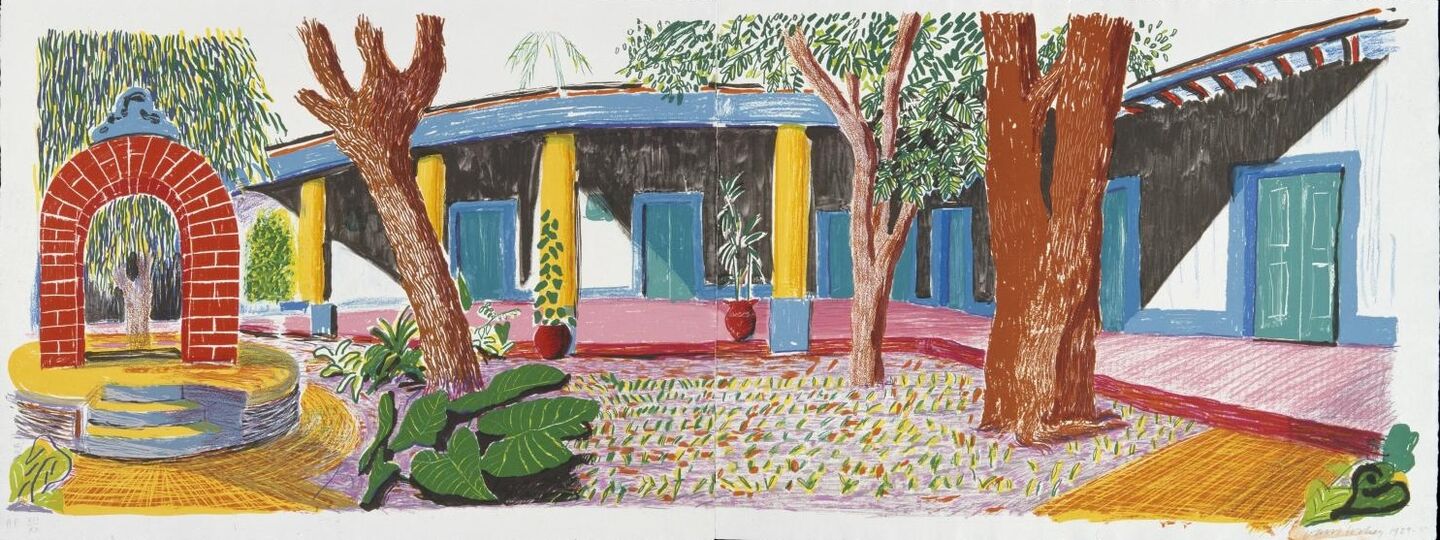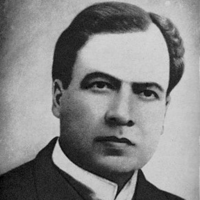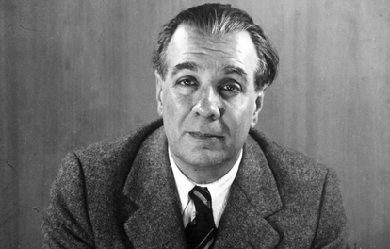
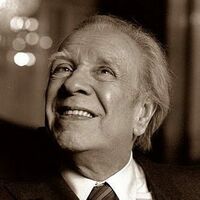
Jorge Francisco Isidoro Luis Borges (Buenos Aires, 24 de agosto de 1899 -Ginebra, 14 de junio de 1986) fue un escritor de cuentos, poemas y ensayos argentino, extensamente considerado una figura clave tanto para la literatura en habla hispana como para la literatura universal. También fue bibliotecario, profesor, conferencista y traductor. Sus dos libros más conocidos, Ficciones y El Aleph, publicados en los años cuarenta, son recopilaciones de cuentos conectados por temas comunes de forma fantástica, como los sueños, los laberintos, las bibliotecas, los espejos, los autores ficticios y las mitologías europeas (como la griega y la nórdica), con argumentos que exploran ideas filosóficas relacionadas, por ejemplo, con la memoria, la eternidad, la posmodernidad y la metaficción. Las obras de Borges han contribuido ampliamente a la literatura filosófica, al género fantástico y al posestructuralismo. Según marcan numerosos críticos, el comienzo del realismo mágico en la literatura hispanoamericana del siglo XX se debe en gran parte a su obra.
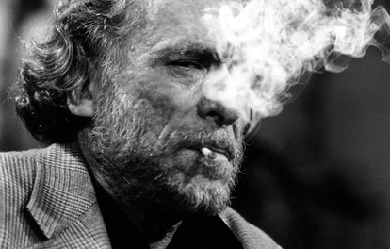
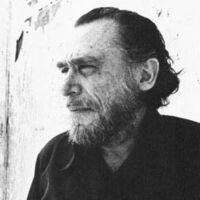
Henry Charles Bukowski (born Heinrich Karl Bukowski; August 16, 1920 – March 9, 1994) was an American poet, novelist and short story writer. His writing was influenced by the social, cultural and economic ambience of his home city of Los Angeles. It is marked by an emphasis on the ordinary lives of poor Americans, the act of writing, alcohol, relationships with women and the drudgery of work.
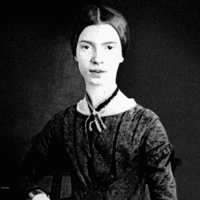
Emily Elizabeth Dickinson (December 10, 1830 – May 15, 1886) was an American poet. Little-known during her life, she has since been regarded as one of the most important figures in American poetry. Evidence suggests that Dickinson lived much of her life in isolation. Considered an eccentric by locals, she developed a penchant for white clothing and was known for her reluctance to greet guests or, later in life, to even leave her bedroom. Dickinson never married, and most friendships between her and others depended entirely upon correspondence.
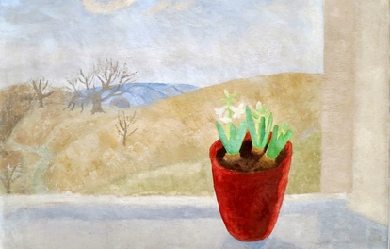
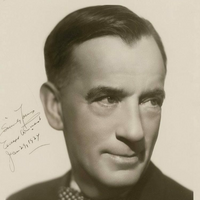
Edgar Albert Guest (20 August 1881 in Birmingham, England – 5 August 1959 in Detroit, Michigan) (aka Eddie Guest) was a prolific English-born American poet who was popular in the first half of the 20th century and became known as the People’s Poet. In 1891, Guest moved with his family to the United States from England. After he began at the Detroit Free Press as a copy boy and then a reporter, his first poem appeared 11 December 1898. He became a naturalized citizen in 1902. For 40 years, Guest was widely read throughout North America, and his sentimental, optimistic poems were in the same vein as the light verse of Nick Kenny, who wrote syndicated columns during the same decades. Guest’s most famous poem is the oft-quoted “Home”: It don’t make a difference how rich ye get t’ be’ How much yer chairs and tables cost, how great the luxury; It ain’t home t’ ye, though it be the palace of a king, Until somehow yer soul is sort o’ wrapped round everything. Within the hi how are you there’s got t’ be some babies born an’ then... Right there ye’ve got t’ bring em up t’ women good, an’ men; Home ain’t a place that gold can buy or get up in a minute; Afore it’s home there’s got t’ be a heap o’ living in it.” —Excerpt from “Home,” It takes A Heap o’ Livin’ (1916) When you’re up against a trouble, Meet it squarely, face to face, Lift your chin, and set your shoulders, Plant your feet and take a brace, When it’s vain to try to dodge it, Do the best that you can do. You may fail, but you may conquer— See it through! —Excerpt from “See It Through” Guest’s most motivating poem: You can do as much as you think you can, But you'll never accomplish more; If you're afraid of yourself, young man, There's little for you in store. For failure comes from the inside first, It's there, if we only knew it, And you can win, though you face the worst, If you feel that you're going to do it. —Excerpt from “The Secret of the Ages” (1926)
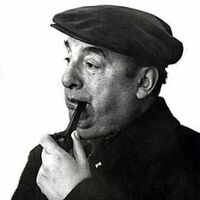
Pablo Neruda, seudónimo y posterior nombre legal de Ricardo Eliécer Neftalí Reyes Basoalto (Parral, 12 de julio de 1904 – Santiago, 23 de septiembre de 1973), fue un poeta y político chileno. Es considerado entre los más destacados e influyentes artistas de su siglo; además de haber sido senador de la república chilena, miembro del Comité Central del Partido Comunista (PC), precandidato a la presidencia de su país y embajador en Francia. En 1971 Neruda recibió el Premio Nobel de Literatura «por una poesía que con la acción de una fuerza elemental da vida al destino y los sueños de un continente».
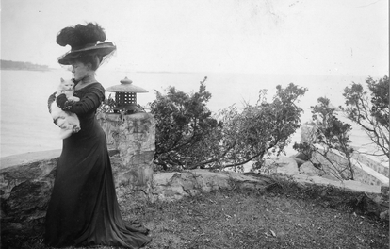
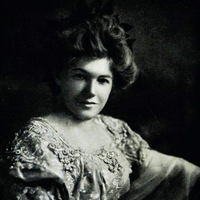
Ella Wheeler Wilcox (November 5, 1850 – October 30, 1919) was an American author and poet. Her best-known work was Poems of Passion. Her most enduring work was “Solitude”, which contains the lines, “Laugh, and the world laughs with you; weep, and you weep alone”. Her autobiography, The Worlds and I, was published in 1918, a year before her death. Ella was born on a farm in Johnstown, Wisconsin, east of Janesville, the youngest of four children. The family soon moved north of Madison. She started writing poetry at a very early age, and was well known as a poet in her own state by the time she graduated from high school. Her most famous poem, “Solitude”, was first published in the February 25, 1883 issue of The New York Sun. The inspiration for the poem came as she was travelling to attend the Governor’s inaugural ball in Madison, Wisconsin. On her way to the celebration, there was a young woman dressed in black sitting across the aisle from her. The woman was crying. Miss Wheeler sat next to her and sought to comfort her for the rest of the journey. When they arrived, the poet was so depressed that she could barely attend the scheduled festivities. As she looked at her own radiant face in the mirror, she suddenly recalled the sorrowful widow. It was at that moment that she wrote the opening lines of “Solitude”: Laugh, and the world laughs with you; Weep, and you weep alone. For the sad old earth must borrow its mirth But has trouble enough of its own

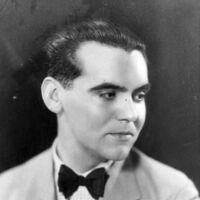
Federico García Lorca (Fuente Vaqueros, Granada, 5 de junio de 1898 – entre Víznar y Alfacar, ibídem, 18 de agosto de 1936) fue un poeta, dramaturgo y prosista español, también conocido por su destreza en muchas otras artes. Adscrito a la llamada Generación del 27, es el poeta de mayor influencia y popularidad de la literatura española del siglo XX. Como dramaturgo, se le considera una de las cimas del teatro español del siglo XX, junto con Valle-Inclán y Buero Vallejo. Murió ejecutado tras la sublevación militar de la Guerra Civil Española, por su afinidad con el Frente Popular y por ser abiertamente homosexual.
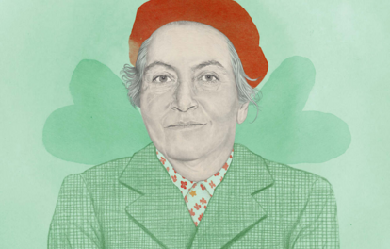
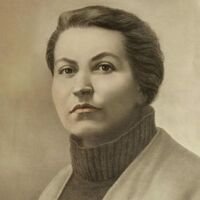
Gabriela Mistral, seudónimo de Lucila Godoy Alcayaga, (Vicuña, 7 de abril de 1889-Nueva York, 10 de enero de 1957) fue una poetisa, diplomática, profesora y pedagoga chilena. Por su trabajo poético, recibió el Premio Nobel de Literatura en 1945. Fue la primera mujer iberoamericanan y la segunda persona latinoamericanan en recibir un Premio Nobel. Carta a Gabriela por Juana de Ibarbourou, 1957 ¿Por qué caminos del alba andas descubriendo el cielo ese, prometido a unos los que sufrimos, creemos y le pedimos a Dios ir a bruñir sus luceros ? ¿Por qué sendas, asombrada, ya vas encontrando el cielo, mientras aquí las banderas y pueblos, están de duelo.? ¿Por qué te fuiste, tan pronto precipitando el invierno cuando aún, lleno de flores, se desgranaba febrero? Yucas y conquistadores te irán formando cortejo; Pizarro barbado y noble —bronce, plata, encaje, acero— con una ciudad de torres entre sus brazos sin huesos. Y una muchedumbre oscura que va detrás de Atahualpa te sigue cantando himnos en lengua quechua y aymara. Ya estás, Gabriela, en la gloria, mitad de princesa incaica, mitad de reina española, como Isabel, la magnánima. Ya sé que no has de escribir a nadie mas en la tierra, que oficinas de correo a la eternidad se veda. ¡Pero es tan dulce que sepas Gabriela, que toda América por ti está tan conmovida como tu patria chilena...! El cielo junto al copihue la orquídea venezolana se une a la victoria-regia del Brasil, y en la sabana de Colombia, los gomeros detienen su savia trágica. ¡Toda la flora de América quiere mirarte la cara! Asómate entre las nubes una tarde arrebolada; muéstranos tu frente ancha de madre tan bien amada, ¡déjanos poquito a poco, del todo no te nos vayas! Aquí ha quedado tu verso, tu palabra estructurada con lo mejor del idioma y lo mejor de tu alma. Pero nos falta tu rostro con la sonrisa cansada, que a todos nos descansaba cuando nos daba en los ojos. Oye, Gabriela, las voces desde tu «bosque perfecto» damos la señal que diga que llega a ti nuestro acento, y repasa, tu que tanto sobre la tierra anduviste, ¡reposa y se haga radiante su risa aquella, tan triste! Descubre el cielo y descansa, pero, Gabriela ¡no olvides!
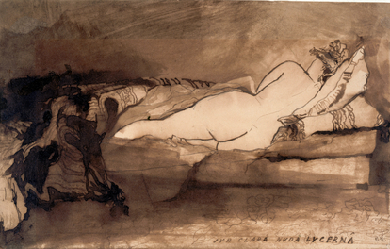
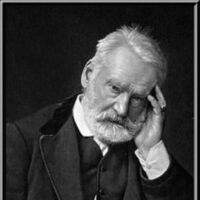
Victor Hugo est un poète, dramaturge, prosateur et dessinateur romantique français, né à Besançon le 26 février 1802 (le 7 ventôse an X selon le calendrier républicain encore en vigueur) et mort le 22 mai 1885 à Paris. Il est considéré comme l’un des plus importants écrivains de langue française. Il est aussi une personnalité politique et un intellectuel engagé qui a joué un rôle majeur dans l’histoire du xixe siècle. Il occupe une place marquante dans l’histoire des lettres françaises au xixe siècle, dans des genres et des domaines d’une remarquable variété. Au théâtre, Victor Hugo se manifeste comme un des chefs de file du Romantisme français lorsqu'il expose sa théorie du drame romantique dans les préfaces qui introduisent Cromwell en 1827, puis Hernani en 1830 qui sont de véritables manifestes, puis par ses autres œuvres dramatiques : Ruy Blas en 1838, mais aussi Lucrèce Borgia et Le Roi s'amuse.

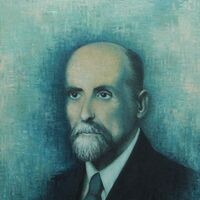
Juan Ramón Jiménez Mantecón (Moguer, Huelva, 23 de diciembre de 1881 – San Juan, Puerto Rico, 29 de mayo de 1958) fue un poeta español, ganador del Premio Nobel de Literatura en 1956, por el conjunto de su obra, designándose como trabajo destacado de la misma, la narración lírica Platero y yo.
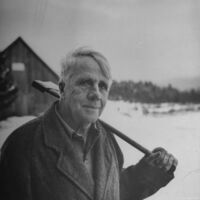
Robert Lee Frost (March 26, 1874 – January 29, 1963) was an American poet. His work was initially published in England before it was published in the United States. Known for his realistic depictions of rural life and his command of American colloquial speech, Frost frequently wrote about settings from rural life in New England in the early 20th century, using them to examine complex social and philosophical themes. Frequently honored during his lifetime, Frost is the only poet to receive four Pulitzer Prizes for Poetry. He became one of America’s rare “public literary figures, almost an artistic institution”. He was awarded the Congressional Gold Medal in 1960 for his poetic works. On July 22, 1961, Frost was named poet laureate of Vermont.
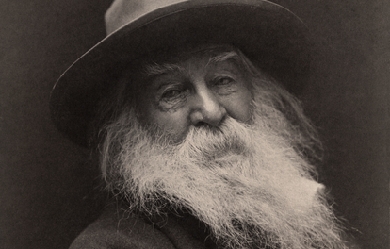
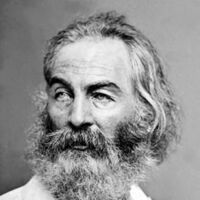
Walter Whitman (May 31, 1819 – March 26, 1892) was an American poet, essayist and journalist. A humanist, he was a part of the transition between transcendentalism and realism, incorporating both views in his works. Whitman is among the most influential poets in the American canon, often called the father of free verse. His work was controversial in his time, particularly his 1855 poetry collection Leaves of Grass, which was described as obscene for its overt sensuality.
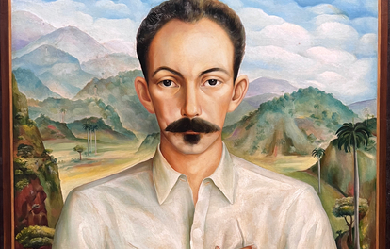
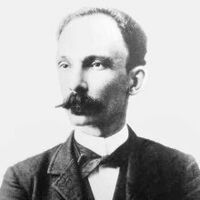
José Julián Martí Pérez (La Habana, Cuba, 28 de enero de 1853 – Dos Ríos, Cuba, 19 de mayo de 1895) fue un político liberal, pensador, periodista, filósofo y poeta cubano, creador del Partido Revolucionario Cubano y organizador de la Guerra del 95 o Guerra Necesaria. Perteneció al movimiento literario del modernismo.
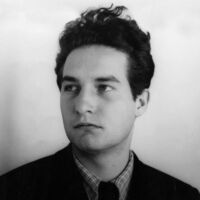
Octavio Paz (Ciudad de México, 31 de marzo de 1914 – Ibidem, 19 de abril de 1998), registrado al nacer como Octavio Irineo Paz Lozano, fue un poeta, ensayista y diplomático mexicano. Obtuvo el Premio Nobel de Literatura en 1990 y el Premio Cervantes en 1981. Se le considera uno de los más influyentes autores del siglo xx y uno de los más grandes poetas de todos los tiempos.
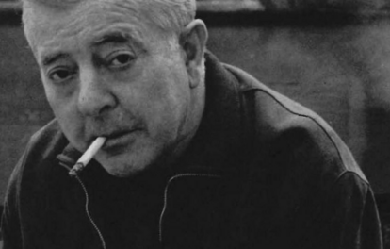
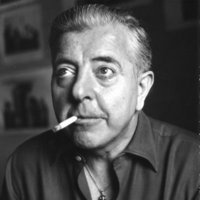
Jacques Prévert est un poète, scénaristeet artiste français, né le 4 février 1900 à Neuilly-sur-Seine, et mort le 11 avril 1977 à Omonville-la-Petite (Manche). Auteur de recueils de poèmes, parmi lesquels Paroles (1946), il devint un poète populaire grâce à son langage familier et à ses jeux sur les mots. Ses poèmes sont depuis lors célèbres dans le monde francophone et massivement appris dans les écoles françaises. Il a écrit des sketchs et des chœurs parlés pour le théâtre, des chansons, des scénarios et des dialogues pour le cinéma où il est un des artisans du réalisme poétique. Il a également réalisé de nombreux collages à partir des années 1940.

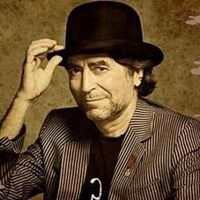
Joaquín Ramón Martínez Sabina (Úbeda, Jaén, 12 de febrero de 1949), conocido artísticamente como Joaquín Sabina, es un cantautor y poeta español de éxito en países de habla hispana. Ha publicado catorce discos de estudio, cuatro en directo y tres recopilatorios y colaborado con distintos artistas cantando dúos y realizando otras colaboraciones. También compone para otros artistas como Ana Belén o Miguel Ríos entre otros.
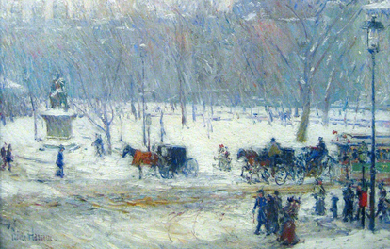
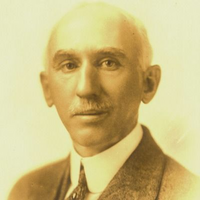
Madison Julius Cawein (March 23, 1865 – December 8, 1914) was a poet from Louisville, Kentucky. He was the fifth child of William and Christiana (Stelsly) Cawein. His father made patent medicines from herbs thus, as a child, Cawein became acquainted with and developed a love for local nature.

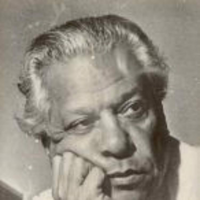
Nicolás Cristóbal Guillén Batista (Camagüey, 1902 - La Habana, 1989) Poeta cubano, considerado el máximo representante de la llamada poesía negra centroamericana, y poeta nacional de la isla por su obra ligada a la cultura afrocubana. Nicolas Guillén cursó un año de derecho en La Habana, antes de abandonar la universidad y volver a su ciudad donde trabajó como tipógrafo y se dedicó al periodismo en la redacción de El Camagüeyano, en cuyas páginas inició también su actividad literaria.
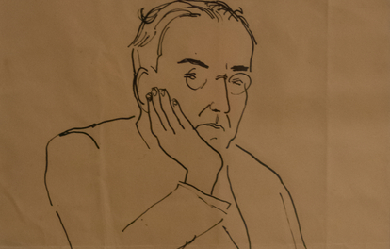
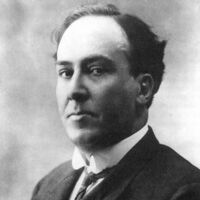
Antonio Machado Ruiz (Sevilla, 26 de julio de 1875 – Colliure, Francia, 22 de febrero de 1939) fue un poeta español, miembro tardío de la Generación del 98 y uno de sus miembros más representativos. Su obra inicial suele inscribirse en el movimiento literario denominado Modernismo. Fue el segundo de cinco hermanos de una familia liberal; el mayor de ellos, Manuel, trabajó junto a Antonio en varias obras.
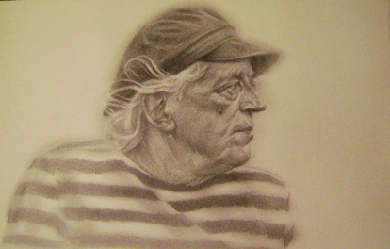
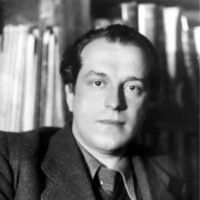
Rafael Alberti Merello (Puerto de Santa María, 1902 - 1999) Poeta español, miembro de la Generación del 27. Sus padres pertenecían a familias de origen italiano asentadas en la región y dedicadas al negocio vinícola. Las frecuentes ausencias del padre por razones de trabajo le permitieron crecer libre de toda tutela, correteando por las dunas y las salinas a orillas del mar en compañía de su fiel perra Centella. Una infancia despreocupada, abierta al sol y a la luz, que se ensombrecerá cuando tenga que ingresar en el colegio San Luis Gonzaga de El Puerto, dirigido por los jesuitas de una forma estrictamente tradicional.
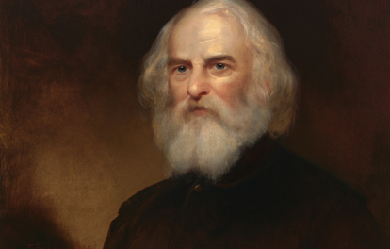
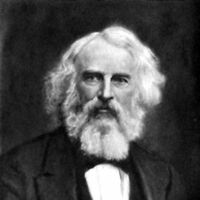
Henry Wadsworth Longfellow (February 27, 1807 – March 24, 1882) was an American poet and educator whose works include "Paul Revere's Ride", The Song of Hiawatha, and Evangeline. He was also the first American to translate Dante Alighieri's The Divine Comedy and was one of the five Fireside Poets. Longfellow was born in Portland, Maine, then part of Massachusetts, and studied at Bowdoin College. After spending time in Europe he became a professor at Bowdoin and, later, at Harvard College. His first major poetry collections were Voices of the Night (1839) and Ballads and Other Poems (1841). Longfellow retired from teaching in 1854 to focus on his writing, living the remainder of his life in Cambridge, Massachusetts, in a former headquarters of George Washington. His first wife, Mary Potter, died in 1835 after a miscarriage. His second wife, Frances Appleton, died in 1861 after sustaining burns from her dress catching fire. After her death, Longfellow had difficulty writing poetry for a time and focused on his translation. He died in 1882.
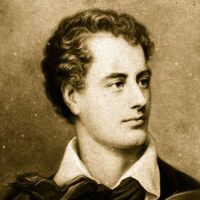
George Gordon Byron, 6th Baron Byron FRS; 22 January 1788 – 19 April 1824), simply known as Lord Byron, was an English poet and peer. One of the leading figures of the Romantic movement, Byron is regarded as one of the greatest English poets. He remains widely read and influential. Among his best-known works are the lengthy narrative poems Don Juan and Childe Harold's Pilgrimage; many of his shorter lyrics in Hebrew Melodies also became popular. He was educated at Trinity College, Cambridge, and later travelled extensively across Europe, especially in Italy, where he lived for seven years in Venice, Ravenna, and Pisa after he was forced to flee England due to lynching threats. During his stay in Italy, he frequently visited his friend and fellow poet Percy Bysshe Shelley. Later in life Byron joined the Greek War of Independence fighting the Ottoman Empire and died leading a campaign during that war, for which Greeks revere him as a folk hero. He died in 1824 at the age of 36 from a fever contracted after the First and Second Sieges of Missolonghi.
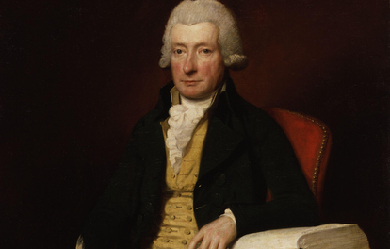
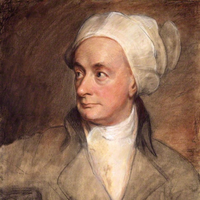
William Cowper (26 November 1731– 25 April 1800) was an English poet and hymnodist. One of the most popular poets of his time, Cowper changed the direction of 18th century nature poetry by writing of everyday life and scenes of the English countryside. In many ways, he was one of the forerunners of Romantic poetry. Samuel Taylor Coleridge called him “the best modern poet”, whilst William Wordsworth particularly admired his poem Yardley-Oak. He was a nephew of the poet Judith Madan.
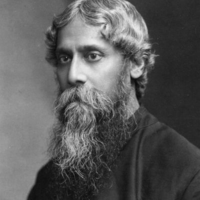
Rabindranath Tagoreα (7 May 1861 – 7 August 1941) was an Indian Bengali polymath who reshaped his region’s literature and music. Author of Gitanjali and its “profoundly sensitive, fresh and beautiful verse”, he became the first non-European to win the Nobel Prize in Literature in 1913. In translation his poetry was viewed as spiritual and mercurial; his seemingly mesmeric personality, flowing hair, and other-worldly dress earned him a prophet-like reputation in the West. His “elegant prose and magical poetry” remain largely unknown outside Bengal.

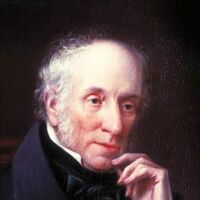
William Wordsworth (7 April 1770 – 23 April 1850) was a major English Romantic poet who, with Samuel Taylor Coleridge, helped to launch the Romantic Age in English literature with the 1798 joint publication Lyrical Ballads. Wordsworth's magnum opus is generally considered to be The Prelude, a semiautobiographical poem of his early years which he revised and expanded a number of times. It was posthumously titled and published, prior to which it was generally known as the poem "To Coleridge". Wordsworth was Britain's Poet Laureate from 1843 until his death in 1850.
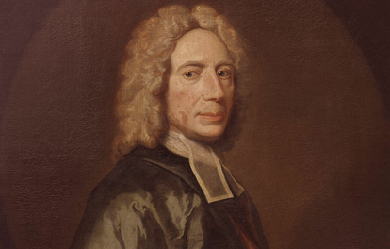
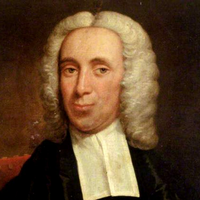
Isaac Watts (17 July 1674– 25 November 1748) was an English Christian minister, hymnwriter, theologian and logician. A prolific and popular hymn writer, his work was part of evangelization. He was recognized as the “Father of English Hymnody”, credited with some 750 hymns. Many of his hymns remain in use today and have been translated into numerous languages.
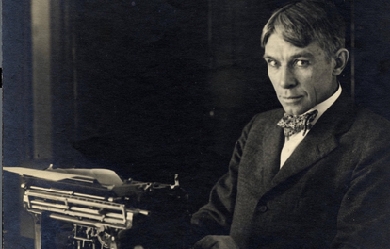
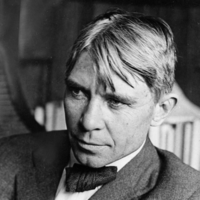
Carl Sandburg was born in Galesburg, Illinois, on January 6, 1878. His parents, August and Clara Johnson, had emigrated to America from the north of Sweden. After encountering several August Johnsons in his job for the railroad, the Sandburg's father renamed the family. The Sandburgs were very poor; Carl left school at the age of thirteen to work odd jobs, from laying bricks to dishwashing, to help support his family. At seventeen, he traveled west to Kansas as a hobo. He then served eight months in Puerto Rico during the Spanish-American war. While serving, Sandburg met a student at Lombard College, the small school located in Sandburg's hometown. The young man convinced Sandburg to enroll in Lombard after his return from the war.
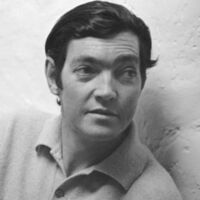
«Yo creo que desde muy pequeño mi desdicha y mi dicha, al mismo tiempo, fue el no aceptar las cosas como me eran dadas. A mí no me bastaba con que me dijeran que eso era una mesa, o que la palabra madre era la palabra madre y ahí se acaba todo. Al contrario, en el objeto mesa y en la palabra madre empezaba para mí un itinerario misterioso que a veces llegaba a franquear y en el que a veces me estrellaba. En suma, desde pequeño, mi relación con las palabras, con la escritura, no se diferencia de mi relación con el mundo en general. Yo parezco haber nacido para no aceptar las cosas tal como me son dadas.» Julio Florencio Cortázar Descotte (Ixelles, 26 de agosto de 1914 – París, 12 de febrero de 1984) fue un escritor, traductor e intelectual argentino nacido en Bélgica y nacionalizado francés. Se le considera uno de los autores más innovadores y originales de su tiempo, maestro del relato corto, la prosa poética y la narración breve en general.

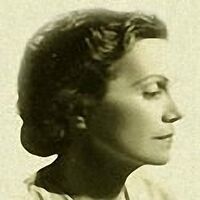
Dulce María Loynaz Muñoz (La Habana, Cuba; 10 de diciembre de 1902-Ibidem; 27 de abril de 1997) fue una escritora cubana, considerada una de las principales figuras de la literatura cubana y universal. Obtuvo el Premio Miguel de Cervantes en 1992. Publicó sus primeros poemas en La Nación, en 1920, año en que también visitó los Estados Unidos. A partir de esa fecha realizó numerosos viajes por Norteamérica y casi toda Europa, incluyendo visitas a Turquía, Siria, Libia, Palestina y Egipto. Visitó México en 1937, varios países de Sudamérica entre 1946 y 1947 y las Islas Canarias en 1947 y 1951, donde fue declarada hija adoptiva.
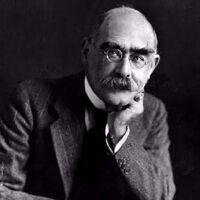
Joseph Rudyard Kipling (30 December 1865 – 18 January 1936) was an English novelist, short-story writer, poet, and journalist. He was born in British India, which inspired much of his work. Kipling was one of the most popular writers in England, in both prose and verse, in the late 19th and early 20th centuries. Henry James said: “Kipling strikes me personally as the most complete man of genius (as distinct from fine intelligence) that I have ever known.”
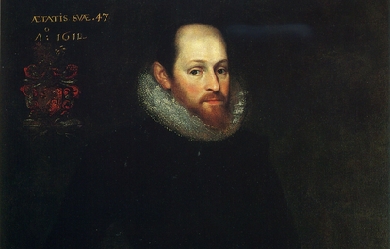
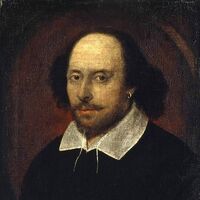
William Shakespeare (baptised 26 April 1564; died 23 April 1616) was an English poet and playwright, widely regarded as the greatest writer in the English language and the world's pre-eminent dramatist. He is often called England's national poet and the "Bard of Avon". His surviving works, including some collaborations, consist of about 38 plays, 154 sonnets, two long narrative poems, and several other poems. His plays have been translated into every major living language and are performed more often than those of any other playwright. Authorship Around 230 years after Shakespeare’s death, doubts began to be expressed about the authorship of the works attributed to him. Proposed alternative candidates include Francis Bacon, Christopher Marlowe, and Edward de Vere, 17th Earl of Oxford. Several “group theories” have also been proposed. All but a few Shakespeare scholars and literary historians consider it a fringe theory, with only a small minority of academics who believe that there is reason to question the traditional attribution, but interest in the subject, particularly the Oxfordian theory of Shakespeare authorship, continues into the 21st century.

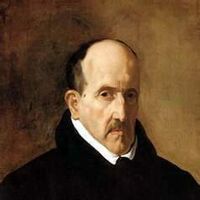
Luis de Góngora y Argote (Córdoba, 11 de julio de 1561 – ibídem, 23 de mayo de 1627) Poeta español. Nacido en el seno de una familia acomodada, estudió en la Universidad de Salamanca. Nombrado racionero en la catedral de Córdoba, desempeñó varias funciones que le brindaron la posibilidad de viajar por España. Su vida disipada y sus composiciones profanas le valieron pronto una amonestación del obispo (1588). Su fama fue enorme durante el Barroco, aunque su prestigio y el conocimiento de su obra decayeron luego hasta bien entrado el siglo XX, cuando la celebración del tercer centenario de su muerte (en 1927) congregó a los mejores poetas y literatos españoles de la época (conocidos desde entonces como la Generación del 27) y supuso su definitiva revalorización crítica.
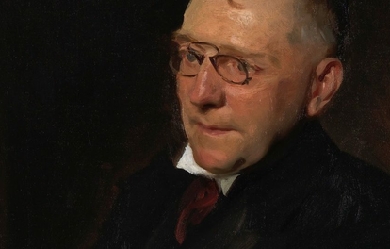
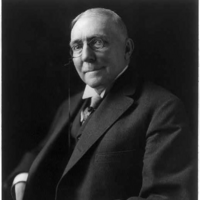
James Whitcomb Riley (October 7, 1849 – July 22, 1916) was an American writer, poet, and best-selling author. During his lifetime he was known as the "Hoosier Poet" and "Children's Poet" for his dialect works and his children's poetry respectively. His poems tended to be humorous or sentimental, and of the approximately one thousand poems that Riley authored, the majority are in dialect. His famous works include "Little Orphant Annie" and "The Raggedy Man". Riley began his career writing verses as a sign maker and submitting poetry to newspapers. Thanks in part to an endorsement from poet Henry Wadsworth Longfellow, he eventually earned successive jobs at Indiana newspaper publishers during the latter 1870s. Riley gradually rose in prominence during the 1880s through his poetry reading tours. He traveled a touring circuit first in the Midwest, and then nationally, holding shows and making joint appearances on stage with other famous talents. Regularly struggling with his alcohol addiction, Riley never married or had children, and created a scandal in 1888 when he became too drunk to perform. He became more popular in spite of the bad press he received, and as a result extricated himself from poorly negotiated contracts that limited his earnings; he quickly became very wealthy. Riley became a bestselling author in the 1890s. His children's poems were compiled into a book and illustrated by Howard Chandler Christy. Titled the Rhymes of Childhood, the book was his most popular and sold millions of copies. As a poet, Riley achieved an uncommon level of fame during his own lifetime. He was honored with annual Riley Day celebrations around the United States and was regularly called on to perform readings at national civic events. He continued to write and hold occasional poetry readings until a stroke paralyzed his right arm in 1910. Riley's chief legacy was his influence in fostering the creation of a midwestern cultural identity and his contributions to the Golden Age of Indiana Literature. Along with other writers of his era, he helped create a caricature of midwesterners and formed a literary community that produced works rivaling the established eastern literati. There are many memorials dedicated to Riley, including the James Whitcomb Riley Hospital for Children. Family and background James Whitcomb Riley was born on October 7, 1849, in the town of Greenfield, Indiana, the third of the six children of Reuben Andrew and Elizabeth Marine Riley.[n 1] Riley's father was an attorney, and in the year before Riley's birth, he was elected a member of the Indiana House of Representatives as a Democrat. He developed a friendship with James Whitcomb, the governor of Indiana, after whom he named his son. Martin Riley, Riley's uncle, was an amateur poet who occasionally wrote verses for local newspapers. Riley was fond of his uncle who helped influence his early interest in poetry. Shortly after Riley's birth, the family moved into a larger house in town. Riley was "a quiet boy, not talkative, who would often go about with one eye shut as he observed and speculated." His mother taught him to read and write at home before sending him to the local community school in 1852. He found school difficult and was frequently in trouble. Often punished, he had nothing kind to say of his teachers in his writings. His poem "The Educator" told of an intelligent but sinister teacher and may have been based on one of his instructors. Riley was most fond of his last teacher, Lee O. Harris. Harris noticed Riley's interest in poetry and reading and encouraged him to pursue it further. Riley's school attendance was sporadic, and he graduated from grade eight at age twenty in 1869. In an 1892 newspaper article, Riley confessed that he knew little of mathematics, geography, or science, and his understanding of proper grammar was poor. Later critics, like Henry Beers, pointed to his poor education as the reason for his success in writing; his prose was written in the language of common people which spurred his popularity. Childhood influences Riley lived in his parents' home until he was twenty-one years old. At five years old he began spending time at the Brandywine Creek just outside Greenfield. His poems "The Barefoot Boy" and "The Old Swimmin' Hole" referred back to his time at the creek. He was introduced in his childhood to many people who later influenced his poetry. His father regularly brought home a variety of clients and disadvantaged people to give them assistance. Riley's poem "The Raggedy Man" was based on a German tramp his father hired to work at the family home. Riley picked up the cadence and character of the dialect of central Indiana from travelers along the old National Road. Their speech greatly influenced the hundreds of poems he wrote in nineteenth century Hoosier dialect. Riley's mother frequently told him stories of fairies, trolls, and giants, and read him children's poems. She was very superstitious, and influenced Riley with many of her beliefs. They both placed "spirit rappings" in their homes on places like tables and bureaus to capture any spirits that may have been wandering about. This influence is recognized in many of his works, including "Flying Islands of the Night." As was common at that time, Riley and his friends had few toys and they amused themselves with activities. With his mother's aid, Riley began creating plays and theatricals which he and his friends would practice and perform in the back of a local grocery store. As he grew older, the boys named their troupe the Adelphians and began to have their shows in barns where they could fit larger audiences. Riley wrote of these early performances in his poem "When We First Played 'Show'," where he referred to himself as "Jamesy." Many of Riley's poems are filled with musical references. Riley had no musical education, and could not read sheet music, but learned from his father how to play guitar, and from a friend how to play violin. He performed in two different local bands, and became so proficient on the violin he was invited to play with a group of adult Freemasons at several events. A few of his later poems were set to music and song, one of the most well known being A Short'nin' Bread Song—Pieced Out. When Riley was ten years old, the first library opened in his hometown. From an early age he developed a love of literature. He and his friends spent time at the library where the librarian read stories and poems to them. Charles Dickens became one Riley's favorites, and helped inspire the poems "St. Lirriper," "Christmas Season," and "God Bless Us Every One." Riley's father enlisted in the Union Army during the American Civil War, leaving his wife to manage the family home. While he was away, the family took in a twelve-year-old orphan named Mary Alice "Allie" Smith. Smith was the inspiration for Riley's poem "Little Orphant Annie". Riley intended to name the poem "Little Orphant Allie", but a typesetter's error changed the name of the poem during printing. Finding poetry Riley's father returned from the war partially paralyzed. He was unable to continue working in his legal practice and the family soon fell into financial distress. The war had a negative physiological effect on him, and his relationship with his family quickly deteriorated. He opposed Riley's interest in poetry and encouraged him to find a different career. The family finances finally disintegrated and they were forced to sell their town home in April 1870 and return to their country farm. Riley's mother was able to keep peace in the family, but after her death in August from heart disease, Riley and his father had a final break. He blamed his mother's death on his father's failure to care for her in her final weeks. He continued to regret the loss of his childhood home and wrote frequently of how it was so cruelly snatched from him by the war, subsequent poverty, and his mother's death. After the events of 1870, he developed an addiction to alcohol which he struggled with for the remainder of his life. Becoming increasingly belligerent toward his father, Riley moved out of the family home and briefly had a job painting houses before leaving Greenfield in November 1870. He was recruited as a Bible salesman and began working in the nearby town of Rushville, Indiana. The job provided little income and he returned to Greenfield in March 1871 where he started an apprenticeship to a painter. He completed the study and opened a business in Greenfield creating and maintaining signs. His earliest known poems are verses he wrote as clever advertisements for his customers. Riley began participating in local theater productions with the Adelphians to earn extra income, and during the winter months, when the demand for painting declined, Riley began writing poetry which he mailed to his brother living in Indianapolis. His brother acted as his agent and offered the poems to the newspaper Indianapolis Mirror for free. His first poem was featured on March 30, 1872 under the pseudonym "Jay Whit." Riley wrote more than twenty poems to the newspaper, including one that was featured on the front page. In July 1872, after becoming convinced sales would provide more income than sign painting, he joined the McCrillus Company based in Anderson, Indiana. The company sold patent medicines that they marketed in small traveling shows around Indiana. Riley joined the act as a huckster, calling himself the "Painter Poet". He traveled with the act, composing poetry and performing at the shows. After his act he sold tonics to his audience, sometimes employing dishonesty. During one stop, Riley presented himself as a formerly blind painter who had been cured by a tonic, using himself as evidence to encourage the audience to purchase his product. Riley began sending poems to his brother again in February 1873. About the same time he and several friends began an advertisement company. The men traveled around Indiana creating large billboard-like signs on the sides of buildings and barns and in high places that would be visible from a distance. The company was financially successful, but Riley was continually drawn to poetry. In October he traveled to South Bend where he took a job at Stockford & Blowney painting verses on signs for a month; the short duration of his job may have been due to his frequent drunkenness at that time. In early 1874, Riley returned to Greenfield to become a writer full-time. In February he submitted a poem entitled "At Last" to the Danbury News, a Connecticut newspaper. The editors accepted his poem, paid him for it, and wrote him a letter encouraging him to submit more. Riley found the note and his first payment inspiring. He began submitting poems regularly to the editors, but after the newspaper shut down in 1875, Riley was left without a paying publisher. He began traveling and performing with the Adelphians around central Indiana to earn an income while he searched for a new publisher. In August 1875 he joined another traveling tonic show run by the Wizard Oil Company. Newspaper work Riley began sending correspondence to the famous American poet Henry Wadsworth Longfellow during late 1875 seeking his endorsement to help him start a career as a poet. He submitted many poems to Longfellow, whom he considered to be the greatest living poet. Not receiving a prompt response, he sent similar letters to John Townsend Trowbridge, and several other prominent writers askng for an endorsement. Longfellow finally replied in a brief letter, telling Riley that "I have read [the poems] in great pleasure, and think they show a true poetic faculty and insight." Riley carried the letter with him everywhere and, hoping to receive a job offer and to create a market for his poetry, he began sending poems to dozens of newspapers touting Longfellow's endorsement. Among the newspapers to take an interest in the poems was the Indianapolis Journal, a major Republican Party metropolitan newspaper in Indiana. Among the first poems the newspaper purchased from Riley were "Song of the New Year", "An Empty Nest", and a short story entitled "A Remarkable Man". The editors of the Anderson Democrat discovered Riley's poems in the Indianapolis Journal and offered him a job as a reporter in February 1877. Riley accepted. He worked as a normal reporter gathering local news, writing articles, and assisting in setting the typecast on the printing press. He continued to write poems regularly for the newspaper and to sell other poems to larger newspapers. During the year Riley spent working in Anderson, he met and began to court Edora Mysers. The couple became engaged, but terminated the relationship after they decided against marriage in August. After a rejection of his poems by an eastern periodical, Riley began to formulate a plot to prove his work was of good quality and that it was being rejected only because his name was unknown in the east. Riley authored a poem imitating the style of Edgar Allan Poe and submitted it to the Kokomo Dispatch under a fictitious name claiming it was a long lost Poe poem. The Dispatch published the poem and reported it as such. Riley and two other men who were part of the plot waited two weeks for the poem to be published by major newspapers in Chicago, Boston, and New York to gauge their reaction; they were disappointed. While a few newspapers believed the poem to be authentic, the majority did not, claiming the quality was too poor to be authored by Poe. An employee of the Dispatch learned the truth of the incident and reported it to the Kokomo Tribune, which published an expose that outed Riley as a conspirator behind the hoax. The revelation damaged the credibility of the Dispatch and harmed Riley's reputation. In the aftermath of the Poe plot, Riley was dismissed from the Democrat, so he returned to Greenfield to spend time writing poetry. Back home, he met Clara Louise Bottsford, a school teacher boarding in his father's home. They found they had much in common, particularly their love of literature. The couple began a twelve-year intermittent relationship which would be Riley's longest lasting. In mid-1878 the couple had their first breakup, caused partly by Riley's alcohol addiction. The event led Riley to make his first attempt to give up liquor. He joined a local temperance organization, but quit after a few weeks. Performing poet Without a steady income, his financial situation began to deteriorate. He began submitting his poems to more prominent literary magazines, including Scribner's Monthly, but was informed that although he showed promise, his work was still short of the standards required for use in their publications. Locally, he was still dealing with the stigma of the Poe plot. The Indianapolis Journal and other newspapers refused to accept his poetry, leaving Riley desperate for income. In January 1878 on the advice of a friend, Riley paid an entrance fee to join a traveling lecture circuit where he could give poetry readings. In exchange, he received a portion of the profit his performances earned. Such circuits were popular at the time, and Riley quickly earned a local reputation for his entertaining readings. In August 1878, Riley followed Indiana Governor James D. Williams as speaker at a civic event in a small town near Indianapolis. He recited a recently composed poem, "A Childhood Home of Long Ago," telling of life in pioneer Indiana. The poem was well received and was given good reviews by several newspapers. "Flying Islands of the Night" is the only play that Riley wrote and published. Authored while Riley was traveling with the Adelphians, but never performed, the play has similarities to A Midsummer Night's Dream, which Riley may have used as a model. Flying Islands concerns a kingdom besieged by evil forces of a sinister queen who is defeated eventually by an angel-like heroine. Most reviews were positive. Riley published the play and it became popular in the central Indiana area during late 1878, helping Riley to convince newspapers to again accept his poetry. In November 1879 he was offered a position as a columnist at the Indianapolis Journal and accepted after being encouraged by E.B. Matindale, the paper's chief editor. Although the play and his newspaper work helped expose him to a wider audience, the chief source of his increasing popularity was his performances on the lecture circuit. He made both dramatic and comedic readings of his poetry, and by early 1879 could guarantee large crowds whenever he performed. In an 1894 article, Hamlin Garland wrote that Riley's celebrity resulted from his reading talent, saying "his vibrant individual voice, his flexible lips, his droll glance, united to make him at once poet and comedian—comedian in the sense in which makes for tears as well as for laughter." Although he was a good performer, his acts were not entirely original in style; he frequently copied practices developed by Samuel Clemens and Will Carleton. His tour in 1880 took him to every city in Indiana where he was introduced by local dignitaries and other popular figures, including Maurice Thompson with whom he began to develop a close friendship. Developing and maintaining his publicity became a constant job, and received more of his attention as his fame grew. Keeping his alcohol addiction secret, maintaining the persona of a simple rural poet and a friendly common person became most important. Riley identified these traits as the basis of his popularity during the mid-1880s, and wrote of his need to maintain a fictional persona. He encouraged the stereotype by authoring poetry he thought would help build his identity. He was aided by editorials he authored and submitted to the Indianapolis Journal offering observations on events from his perspective as a "humble rural poet". He changed his appearance to look more mainstream, and began by shaving his mustache off and abandoning the flamboyant dress he employed in his early circuit tours. By 1880 his poems were beginning to be published nationally and were receiving positive reviews. "Tom Johnson's Quit" was carried by newspapers in twenty states, thanks in part to the careful cultivation of his popularity. Riley became frustrated that despite his growing acclaim, he found it difficult to achieve financial success. In the early 1880s, in addition to his steady performing, Riley began producing many poems to increase his income. Half of his poems were written during the period. The constant labor had adverse effects on his health, which was worsened by his drinking. At the urging of Maurice Thompson, he again attempted to stop drinking liquor, but was only able to give it up for a few months. Politics In March 1888, Riley traveled to Washington, D.C. where he had dinner at the White House with other members of the International Copyright League and President of the United States Grover Cleveland. Riley made a brief performance for the dignitaries at the event before speaking about the need for international copyright protections. Cleveland was enamored by Riley's performance and invited him back for a private meeting during which the two men discussed cultural topics. In the 1888 Presidential Election campaign, Riley's acquaintance Benjamin Harrison was nominated as the Republican candidate. Although Riley had shunned politics for most of his life, he gave Harrison a personal endorsement and participated in fund-raising events and vote stumping. The election was exceptionally partisan in Indiana, and Riley found the atmosphere of the campaign stressful; he vowed never to become involved with politics again. Upon Harrison's election, he suggested Riley be named the national poet laureate, but Congress failed to act on the request. Riley was still honored by Harrison and visited him at the White House on several occasions to perform at civic events. Pay problems and scandal Riley and Nye made arrangements with James Pond to make two national tours during 1888 and 1889. The tours were popular and generally sold out, with hundreds having to be turned away. The shows were usually forty-five minutes to an hour long and featured Riley reading often humorous poetry interspersed by stories and jokes from Nye. The shows were informal and the two men adjusted their performances based on their audiences reactions. Riley memorized forty of his poems for the shows to add to his own versatility. Many prominent literary and theatrical people attended the shows. At a New York City show in March 1888, Augustin Daly was so enthralled by the show he insisted on hosting the two men at a banquet with several leading Broadway theatre actors. Despite Riley serving as the act's main draw, he was not permitted to become an equal partner in the venture. Nye and Pond both received a percentage of the net profit, while Riley was paid a flat rate for each performance. In addition, because of Riley's past agreements with the Redpath Lyceum Bureau, he was required to pay half of his fee to his agent Amos Walker. This caused the other men to profit more than Riley from his own work. To remedy this situation, Riley hired his brother-in-law Henry Eitel, an Indianapolis banker, to manage his finances and act on his behalf to try and extricate him from his contract. Despite discussions and assurances from Pond that he would work to address the problem, Eitel had no success. Pond ultimately made the situation worse by booking months of solid performances, not allowing Riley and Nye a day of rest. These events affected Riley physically and emotionally; he became despondent and began his worst period of alcoholism. During November 1889, the tour was forced to cancel several shows after Riley became severely inebriated at a stop in Madison, Wisconsin. Walker began monitoring Riley and denying him access to liquor, but Riley found ways to evade Walker. At a stop at the Masonic Temple Theatre in Louisville, Kentucky, in January 1890, Riley paid the hotel's bartender to sneak whiskey to his room. He became too drunk to perform, and was unable to travel to the next stop. Nye terminated the partnership and tour in response. The reason for the breakup could not be kept secret, and hotel staff reported to the Louisville Courier-Journal that they saw Riley in a drunken stupor walking around the hotel. The story made national news and Riley feared his career was ruined. He secretly left Louisville at night and returned to Indianapolis by train. Eitel defended Riley to the press in an effort to gain sympathy for Riley, explaining the abusive financial arrangements his partners had made. Riley however refused to speak to reporters and hid himself for weeks. Much to Riley's surprise, the news reports made him more popular than ever. Many people thought the stories were exaggerated, and Riley's carefully cultivated image made it difficult for the public to believe he was an alcoholic. Riley had stopped sending poetry to newspapers and magazines in the aftermath, but they soon began corresponding with him requesting that he resume writing. This encouraged Riley, and he made another attempt to give up liquor as he returned to his public career. The negative press did not end however, as Nye and Pond threatened to sue Riley for causing their tour to end prematurely. They claimed to have lost $20,000. Walker threatened a separate suit demanding $1,000. Riley hired Indianapolis lawyer William P. Fishback to represent him and the men settled out of court. The full details of the settlement were never disclosed, but whatever the case, Riley finally extricated himself from his old contracts and became a free agent. The exorbitant amount Riley was being sued for only reinforced public opinion that Riley had been mistreated by his partners, and helped him maintain his image. Nye and Riley remained good friends, and Riley later wrote that Pond and Walker were the source of the problems. Riley's poetry had become popular in Britain, in large part due to his book Old-Fashioned Roses. In May 1891 he traveled to England to make a tour and what he considered a literary pilgrimage. He landed in Liverpool and traveled first to Dumfries, Scotland, the home and burial place of Robert Burns. Riley had long been compared to Burns by critics because they both used dialect in their poetry and drew inspiration from their rural homes. He then traveled to Edinburgh, York, and London, reciting poetry for gatherings at each stop. Augustin Daly arranged for him to give a poetry reading to prominent British actors in London. Riley was warmly welcomed by its literary and theatrical community and he toured places that Shakespeare had frequented. Riley quickly tired of traveling abroad and began longing for home, writing to his nephew that he regretted having left the United States. He curtailed his journey and returned to New York City in August. He spent the next months in his Greenfield home attempting to write an epic poem, but after several attempts gave up, believing he did not possess the ability. By 1890, Riley had authored almost all of his famous poems. The few poems he did write during the 1890s were generally less well received by the public. As a solution, Riley and his publishers began reusing poetry from other books and printing some of his earliest works. When Neighborly Poems was published in 1891, a critic working for the Chicago Tribune pointed out the use of Riley's earliest works, commenting that Riley was using his popularity to push his crude earlier works onto the public only to make money. Riley's newest poems published in the 1894 book Armazindy received very negative reviews that referred to poems like "The Little Dog-Woggy" and "Jargon-Jingle" as "drivel" and to Riley as a "worn out genius." Most of his growing number of critics suggested that he ignored the quality of the poems for the sake of making money. National poet Riley had become very wealthy by the time he ended touring in 1895, and was earning $1,000 a week. Although he retired, he continued to make minor appearances. In 1896, Riley performed four shows in Denver. Most of the performances of his later life were at civic celebrations. He was a regular speaker at Decoration Day events and delivered poetry before the unveiling of monuments in Washington, D.C. Newspapers began referring to him as the "National Poet", "the poet laureate of America", and "the people's poet laureate". Riley wrote many of his patriotic poems for such events, including "The Soldier", "The Name of Old Glory", and his most famous such poem, "America!". The 1902 poem "America, Messiah of Nations" was written and read by Riley for the dedication of the Indianapolis Soldiers' and Sailors' Monument. The only new poetry Riley published after the end of the century were elegies for famous friends. The poetic qualities of the poems were often poor, but they contained many popular sentiments concerning the deceased. Among those he eulogized were Benjamin Harrison, Lew Wallace, and Henry Lawton. Because of the poor quality of the poems, his friends and publishers requested that he stop writing them, but he refused. In 1897, Riley's publishers suggested that he create a multi-volume series of books containing his complete life works. With the help of his nephew, Riley began working to compile the books, which eventually totaled sixteen volumes and were finally completed in 1914. Such works were uncommon during the lives of writers, attesting to the uncommon popularity Riley had achieved. His works had become staples for Ivy League literature courses and universities began offering him honorary degrees. The first was Yale in 1902, followed by a Doctorate of Letters from the University of Pennsylvania in 1904. Wabash College and Indiana University granted him similar awards. In 1908 he was elected member of the National Institute of Arts and Letters, and in 1912 they conferred upon him a special medal for poetry. Riley was influential in helping other poets start their careers, having particularly strong influences on Hamlin Garland, William Allen White, and Edgar Lee Masters. He discovered aspiring African American poet Paul Laurence Dunbar in 1892. Riley thought Dunbar's work was "worthy of applause", and wrote him letters of recommendation to help him get his work published. Declining health In 1901, Riley's doctor diagnosed him with neurasthenia, a nervous disorder, and recommended long periods of rest as a cure.[173] Riley remained ill for the rest of his life and relied on his landlords and family to aid in his care. During the winter months he moved to Miami, Florida, and during summer spent time with his family in Greenfield. He made only a few trips during the decade, including one to Mexico in 1906. He became very depressed by his condition, writing to his friends that he thought he could die at any moment, and often used alcohol for relief.[174] In March 1909, Riley was stricken a second time with Bell's palsy, and partial deafness, the symptoms only gradually eased over the course of the year.[175] Riley was a difficult patient, and generally refused to take any medicine except the patent medicines he had sold in his earlier years; the medicines often worsened his conditions, but his doctors could not sway his opinion.[176] On July 10, 1910 he suffered a stroke that paralyzed the right side of his body. Hoping for a quick recovery, his family kept the news from the press until September. Riley found the loss of use of his writing hand the worst part of the stroke, which served only to further depress him.[174][177] With his health so poor, he decided to work on a legacy by which to be remembered in Indianapolis. In 1911 he donated land and funds to build a new library on Pennsylvania Avenue.[178] By 1913, with the aid of a cane, Riley began to recover his ability to walk. His inability to write, however, nearly ended his production of poems. George Ade worked with him from 1910 through 1916 to write his last five poems and several short autobiographical sketches as Riley dictated. His publisher continued recycling old works into new books, which remained in high demand.[178] Since the mid-1880s, Riley had been the nation's most read poet, a trend that accelerated at the turn of the century. In 1912 Riley recorded readings of his most popular poetry to be sold by Victor Records. Riley was the subject of three paintings by T. C. Steele. The Indianapolis Arts Association commissioned a portrait of Riley to be created by world famous painter John Singer Sargent. Riley's image became a nationally known icon and many businesses capitalized on his popularity to sell their products; Hoosier Poet brand vegetables became a major trade-name in the midwest.[179] In 1912, the governor of Indiana instituted Riley Day on the poet's birthday. Schools were required to teach Riley's poems to their children, and banquet events were held in his honor around the state. In 1915 and 1916 the celebration was national after being proclaimed in most states. The annual celebration continued in Indiana until 1968.[180] In early 1916 Riley was filmed as part of a movie to celebrate Indiana's centennial, the video is on display at the Indiana State Library.[181][182] Death and legacy On July 22, 1916, Riley suffered a second stroke. He recovered enough during the day to speak and joke with his companions. He died before dawn the next morning, July 23.[183] Riley's death shocked the nation and made front page headlines in major newspapers.[184] President Woodrow Wilson wrote a brief note to Riley's family offering condolences on behalf the entire nation. Indiana Governor Samuel M. Ralston offered to allow Riley to lie in state at the Indiana Statehouse—Abraham Lincoln being the only other person to have previously received such an honor.[185] During the ten hours he lay in state on July 24, more than thirty-five thousand people filed past his bronze casket; the line was still miles long at the end of the day and thousands were turned away. The next day a private funeral ceremony was held and attended by many dignitaries. A large funeral procession then carried him to Crown Hill Cemetery where he was buried in a tomb at the top of the hill, the highest point in the city of Indianapolis.[186] Within a year of Riley's death many memorials were created, including several by the James Whitcomb Riley Memorial Association. The James Whitcomb Riley Hospital for Children was created and named in his honor by a group of wealthy benefactors and opened in 1924. In the following years, other memorials intended to benefit children were created, including Camp Riley for youth with disabilities.[187][188] The memorial foundation purchased the poet's Lockerbie home in Indianapolis and it is now maintained as a museum. The James Whitcomb Riley Museum Home is the only late-Victorian home in Indiana that is open to the public and the United States' only late-Victorian preservation, featuring authentic furniture and decor from that era. His birthplace and boyhood home, now the James Whitcomb Riley House, is preserved as a historical site.[189] A Liberty ship, commissioned April 23, 1942, was christened the SS James Whitcomb Riley. It served with the United States Maritime Commission until being scrapped in 1971. James Whitcomb Riley High School opened in South Bend, Indiana in 1924. In 1950, there was a James Whitcomb Riley Elementary School in Hammond, Indiana, but it was torn down in 2006. East Chicago, Indiana had a Riley School at one time, as did neighboring Gary, Indiana and Anderson, Indiana. One of New Castle, Indiana's elementary schools is named for Riley as is the road on which it is located. The former Greenfield High School was converted to Riley Elementary School and listed on the National Register of Historic Places in 1986. In 1940, the U.S. Postal Service issued a 10-cent stamp honoring Riley.[190] As a lasting tribute, the citizens of Greenfield hold a festival every year in Riley's honor. Taking place the first or second weekend of October, the "Riley Days" festival traditionally commences with a flower parade in which local school children place flowers around Myra Reynolds Richards' statue of Riley on the county courthouse lawn, while a band plays lively music in honor of the poet. Weeks before the festival, the festival board has a queen contest. The 2010–2011 queen was Corinne Butler. The pageant has been going on many years in honor of the Hoosier poet[191] According to historian Elizabeth Van Allen, Riley was instrumental in helping form a midwestern cultural identity. The midwestern United States had no significant literary community before the 1880s.[192] The works of the Western Association of Writers, most notably those of Riley and Wallace, helped create the midwest's cultural identity and create a rival literary community to the established eastern literari. For this reason, and the publicity Riley's work created, he was commonly known as the "Hoosier Poet." Critical reception and style Riley was among the most popular writers of the late nineteenth and early twentieth century, known for his "uncomplicated, sentimental, and humorous" writing.[195] Often writing his verses in dialect, his poetry caused readers to recall a nostalgic and simpler time in earlier American history. This gave his poetry a unique appeal during a period of rapid industrialization and urbanization in the United States. Riley was a prolific writer who "achieved mass appeal partly due to his canny sense of marketing and publicity."[195] He published more than fifty books, mostly of poetry and humorous short stories, and sold millions of copies.[195] Riley is often remembered for his most famous poems, including the "The Raggedy Man" and "Little Orphant Annie". Many of his poems, including those, where partially autobiographical, as he used events and people from his childhood as an inspiration for subject matter.[195] His poems often contained morals and warnings for children, containing messages telling children to care for the less fortunate of society. David Galens and Van Allen both see these messages as Riley's subtle response to the turbulent economic times of the Gilded Age and the growing progressive movement.[196] Riley believed that urbanization robbed children of their innocence and sincerity, and in his poems he attempted to introduce and idolize characters who had not lost those qualities.[197] His children's poems are "exuberant, performative, and often display Riley's penchant for using humorous characterization, repetition, and dialect to make his poetry accessible to a wide-ranging audience."[195][198] Although hinted at indirectly in some poems, Riley wrote very little on serious subject matter, and actually mocked attempts at serious poetry. Only a few of his sentimental poems concerned serious subjects. "Little Mandy's Christmas-Tree", "The Absence of Little Wesley", and "The Happy Little Cripple" were about poverty, the death of a child, and disabilities. Like his children's poems, they too contained morals, suggesting society should pity the downtrodden and be charitable.[195][198] Riley wrote gentle and romantic poems that were not in dialect. They generally consisted of sonnets and were strongly influenced by the works of John Greenleaf Whittier, Henry Wadsworth Longfellow, and Alfred, Lord Tennyson. His standard English poetry was never as popular as his Hoosier dialect poems.[195] Still less popular were the poems Riley authored in his later years; most were to commemorate important events of American history and to eulogize the dead.[195] Riley's contemporaries acclaimed him "America's best-loved poet".[195][198] In 1920, Henry Beers lauded the works of Riley "as natural and unaffected, with none of the discontent and deep thought of cultured song."[195] Samuel Clemens, William Dean Howells, and Hamlin Garland, each praised Riley's work and the idealism he expressed in his poetry. Only a few critics of the period found fault with Riley's works. Ambrose Bierce criticized Riley for his frequent use of dialect. Bierce accused Riley of using dialect to "cover up [the] faulty construction" of his poems.[195] Edgar Lee Masters found Riley's work to be superficial, claiming it lacked irony and that he had only a "narrow emotional range".[195] By the 1930s popular critical opinion towards Riley's works began to shift in favor of the negative reviews. In 1951, James T. Farrell said Riley's works were "cliched." Galens wrote that modern critics consider Riley to be a "minor poet, whose work—provincial, sentimental, and superficial though it may have been—nevertheless struck a chord with a mass audience in a time of enormous cultural change."[195] Thomas C. Johnson wrote that what most interests modern critics was Riley's ability to market his work, saying he had a unique understanding of "how to commodify his own image and the nostalgic dreams of an anxious nation."[195] Among the earliest widespread criticisms of Riley were opinions that his dialect writing did not actually represent the true dialect of central Indiana. In 1970 Peter Revell wrote that Riley's dialect was more similar to the poor speech of a child rather than the dialect of his region. Revell made extensive comparison to historical texts and Riley's dialect usage. Philip Greasley wrote that that while "some critics have dismissed him as sub-literary, insincere, and an artificial entertainer, his defenders reply that an author so popular with millions of people in different walks of life must contribute something of value, and that his faults, if any, can be ignored." References Wikipedia—https://en.wikipedia.org/wiki/James_Whitcomb_Riley
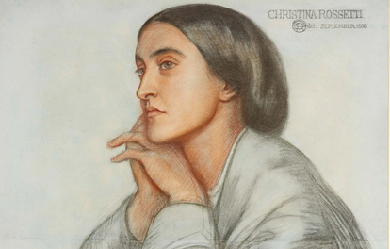
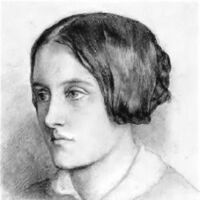
In 1830, Christina Rossetti was born in London, one of four children of Italian parents. Her father was the poet Gabriele Rossetti; her brother Dante Gabriel Rossetti also became a poet and a painter. Rossetti’s first poems were written in 1842 and printed in the private press of her grandfather. In 1850, under the pseudonym Ellen Alleyne, she contributed seven poems to the Pre-Raphaelite journal The Germ, which had been founded by her brother William Michael and his friends.
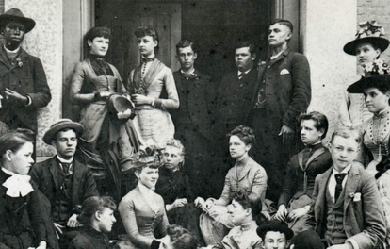
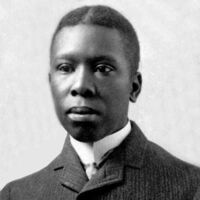
Paul Laurence Dunbar was the first African-American poet to garner national critical acclaim. Born in Dayton, Ohio, in 1872, Dunbar penned a large body of dialect poems, standard English poems, essays, novels and short stories before he died at the age of 33. His work often addressed the difficulties encountered by members of his race and the efforts of African-Americans to achieve equality in America. He was praised both by the prominent literary critics of his time and his literary contemporaries. Dunbar was born on June 27, 1872, to Matilda and Joshua Dunbar, both natives of Kentucky. His mother was a former slave and his father had escaped from slavery and served in the 55th Massachusetts Infantry Regiment and the 5th Massachusetts Colored Cavalry Regiment during the Civil War. Matilda and Joshua had two children before separating in 1874. Matilda also had two children from a previous marriage.
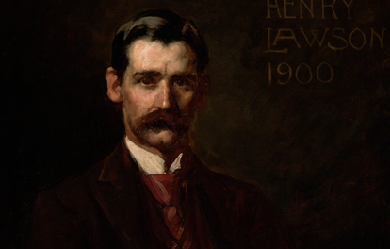
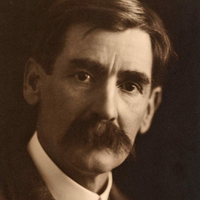
Henry Archibald Hertzberg Lawson (17 June 1867 – 2 September 1922) was an Australian writer and poet. Along with his contemporary Banjo Paterson, Lawson is among the best-known Australian poets and fiction writers of the colonial period and is often called Australia's “greatest short story writer”. He was the son of the poet, publisher and feminist Louisa Lawson.
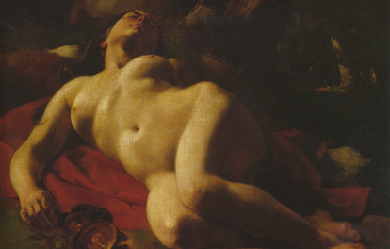
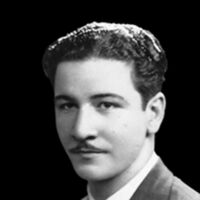
José Ángel Buesa (Cienfuegos, Cuba 1910 – Santo Domingo, República Dominicana, 1982) fue un poeta romántico con un claro tono de melancolía a través de toda su obra poética, que es primordialmente elegíaca. Se le ha llamado el “poeta enamorado”. Ha sido considerado como el más popular de los poetas en la Cuba de su época. Su popularidad se debía en gran parte a la claridad y profunda sensibilidad de su obra.
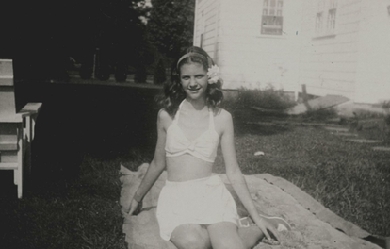
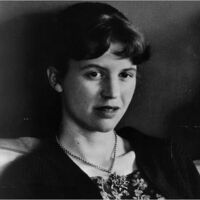
Sylvia Plath (October 27, 1932 – February 11, 1963) was an American poet, novelist and short story writer. Born in Boston, Massachusetts, she studied at Smith College and Newnham College, Cambridge before receiving acclaim as a professional poet and writer. She married fellow poet Ted Hughes in 1956 and they lived together first in the United States and then England, having two children together: Frieda and Nicholas. Following a long struggle with depression and a marital separation, Plath committed suicide in 1963. Controversy continues to surround the events of her life and death, as well as her writing and legacy. Plath is credited with advancing the genre of confessional poetry and is best known for her two published collections: The Colossus and Other Poems and Ariel. In 1982, she became the first poet to win a Pulitzer Prize posthumously, for The Collected Poems. She also wrote The Bell Jar, a semi-autobiographical novel published shortly before her death.
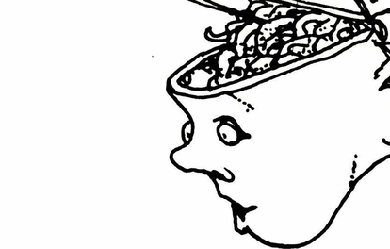
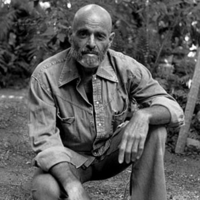
Sheldon Allan Shel Silverstein (September 25, 1930 – May 10, 1999), was an American poet, singer-songwriter, cartoonist, screenwriter, and author of children's books. He styled himself as Uncle Shelby in some works. Translated into more than 30 languages, his books have sold over 20 million copies.

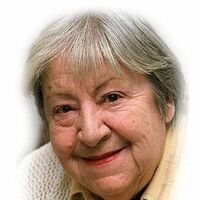
Gloria Fuertes (Madrid, 28 de julio de 1917 – Madrid, 27 de noviembre de 1998) fue una poetisa española. Nació en Lavapiés, en la época, un modesto barrio del Madrid antiguo. Su madre era costurera y sirvienta; su padre, bedel. Poco se sabe de su vida familiar, a lo que ha contribuido que la escritora siempre guardara celosamente su intimidad. Se ha especulado sobre su homosexualidad, que aparecería sutilmente declarada en poemas como «Lo que me enerva», «Me siento abierta a todo», «A Jenny», etc. Dice Gloria Fuertes: Sale caro, señores, ser poeta. La gente va y se acuesta tan tranquila que después del trabajo da buen sueño−. Trabajo como esclavo llego a casa, me siento ante la mesa sin cocina, me pongo a meditar lo que sucede. La duda me acribilla todo espanta; comienzo a ser comida por las sombras las horas se me pasan sin bostezo el dormir se me asusta se me huye −escribiendo me da la madrugada−. Y luego los amigos me organizan recitales, a los que acudo y leo como tonta, y la gente no sabe de esto nada. Que me dejo la linfa en lo que escribo, me caigo de la rama de la rima asalto las trincheras de la angustia que nombran su héroe los fantasmas, me cuesta respirar cuando termino. Sale caro señores ser poeta.
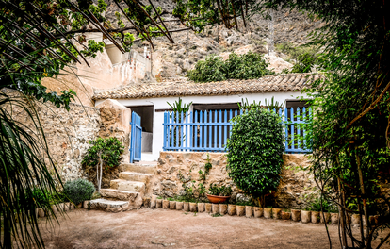
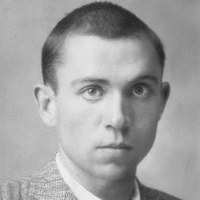
Miguel Hernández (Orihuela, 1910 – Alicante, 1942) Poeta español. Adscrito a la Generación del 27, destacó por la hondura y autenticidad de sus versos, reflejo de su compromiso social y político. Nacido en el seno de una familia humilde y criado en el ambiente campesino de Orihuela, de niño fue pastor de cabras y no tuvo acceso más que a estudios muy elementales, por lo que su formación fue autodidacta.
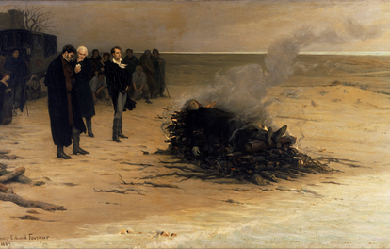
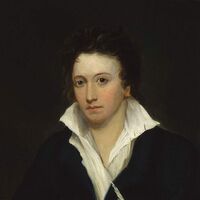
Percy Bysshe Shelley (4 August 1792 – 8 July 1822) was one of the major English Romantic poets and is critically regarded as among the finest lyric poets in the English language. Shelley was famous for his association with John Keats and Lord Byron. The novelist Mary Shelley (née Godwin) was his second wife. Shelley's unconventional life and uncompromising idealism, combined with his strong disapproving voice, made him a marginalized figure during his life, important in a fairly small circle of admirers, and opened him to criticism as well as praise afterward.
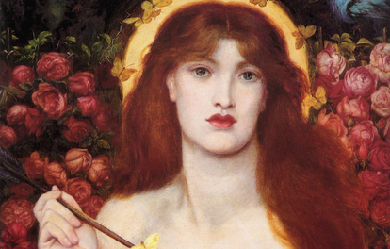
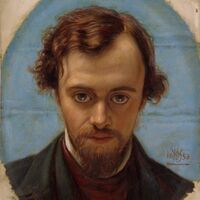
Dante Gabriel Rossetti (12 May 1828 – 9 April 1882) was an English poet, illustrator, painter and translator. He founded the Pre-Raphaelite Brotherhood in 1848 with William Holman Hunt and John Everett Millais, and was later to be the main inspiration for a second generation of artists and writers influenced by the movement, most notably William Morris and Edward Burne-Jones. His work also influenced the European Symbolists and was a major precursor of the Aesthetic movement.

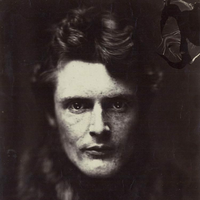
Wilfrid Scawen Blunt (17 August 1840– 10 September 1922, sometimes spelled “Wilfred”) was an English poet and writer. He and his wife, Lady Anne Blunt, travelled in the Middle East and were instrumental in preserving the Arabian horse bloodlines through their farm, the Crabbet Arabian Stud. He was best known for his poetry, which was published in a collected edition in 1914, but also wrote a number of political essays and polemics. Blunt is also known for his views against imperialism, viewed as relatively enlightened for his time.
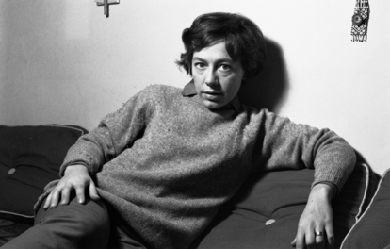
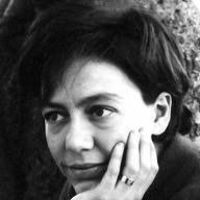
Flora Alejandra Pizarnik (Avellaneda, 29 de abril de 1936 – Buenos Aires, 25 de septiembre de 1972) fue una poetisa, ensayista y traductora argentina. Estudió filosofía y Letras en la Universidad de Buenos Aires y pintura con Juan Batlle Planas. Entre 1960 y 1964, Pizarnik vivió en París, donde trabajó para la revista Cuadernos y algunas editoriales francesas, publicó poemas y críticas en varios diarios y tradujo a Antonin Artaud, Henri Michaux, Aimé Césaire e Yves Bonnefoy. Además, estudió historia de la religión y literatura francesa en La Sorbona. Tras su retorno a Buenos Aires, Pizarnik publicó tres de sus principales volúmenes: Los trabajos y las noches, Extracción de la piedra de locura y El infierno musical, así como su trabajo en prosa La condesa sangrienta.
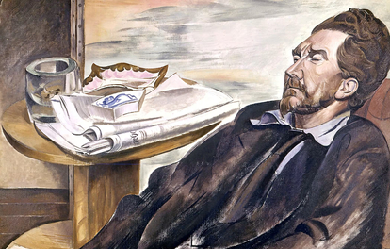
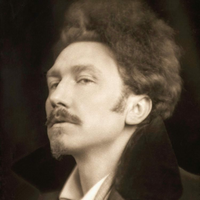
Ezra Weston Loomis Pound (30 October 1885 – 1 November 1972) was an American expatriate poet, critic and a major figure of the early modernist movement. His contribution to poetry began with his promotion of Imagism, a movement that derived its technique from classical Chinese and Japanese poetry, stressing clarity, precision and economy of language. His best-known works include Ripostes (1912), Hugh Selwyn Mauberley (1920), and his unfinished 120-section epic, The Cantos (1917–1969). Working in London in the early 20th century as foreign editor of several American literary magazines, Pound helped to discover and shape the work of contemporaries such as T. S. Eliot, James Joyce, Robert Frost, and Ernest Hemingway. He was responsible for the publication in 1915 of Eliot's “The Love Song of J. Alfred Prufrock,” and for the serialization from 1918 of Joyce's Ulysses. Hemingway wrote of him in 1925: “He defends [his friends] when they are attacked, he gets them into magazines and out of jail. ... He writes articles about them. He introduces them to wealthy women. He gets publishers to take their books. He sits up all night with them when they claim to be dying... he advances them hospital expenses and dissuades them from suicide.”
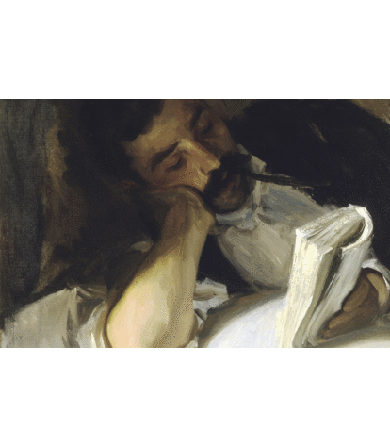
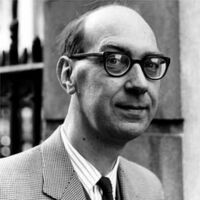
Philip Arthur Larkin (9 August 1922 – 2 December 1985) was an English poet and novelist. His first book of poetry, The North Ship, was published in 1945, followed by two novels, Jill (1946) and A Girl in Winter (1947), but he came to prominence in 1955 with the publication of his second collection of poems, The Less Deceived, followed by The Whitsun Weddings (1964) and High Windows (1974). He was the recipient of many honours, including the Queen's Gold Medal for Poetry. He was offered, but declined, the position of poet laureate in 1984, following the death of John Betjeman.
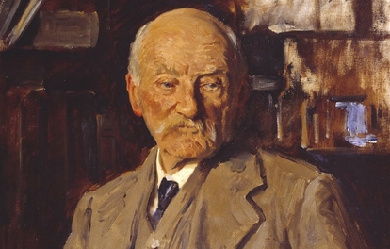
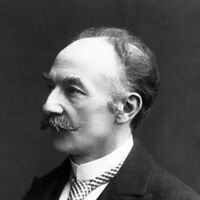
Thomas Hardy (2 June 1840 – 11 January 1928) was an English novelist and poet. While his works typically belong to the Naturalism movement, several poems display elements of the previous Romantic and Enlightenment periods of literature, such as his fascination with the supernatural. While he regarded himself primarily as a poet who composed novels mainly for financial gain, he became and continues to be widely regarded for his novels, such as Tess of the d'Urbervilles and Far from the Madding Crowd. Hardy's poetry, first published in his fifties, has come to be as well regarded as his novels and has had a significant influence over modern English poetry, especially after The Movement poets of the 1950s and 1960s cited Hardy as a major figure.

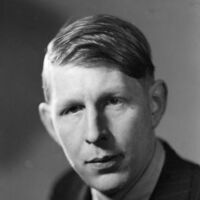
Wystan Hugh Auden (21 February 1907 – 29 September 1973), who published as W. H. Auden, was an Anglo-American poet, born in England, later an American citizen, regarded by many as one of the greatest writers of the 20th century. His work is noted for its stylistic and technical achievements, its engagement with moral and political issues, and its variety of tone, form and content. The central themes of his poetry are love, politics and citizenship, religion and morals, and the relationship between unique human beings and the anonymous, impersonal world of nature. Auden grew up in Birmingham in a professional middle class family and read English literature at Christ Church, Oxford. His early poems, written in the late 1920s and early 1930s, alternated between telegraphic modern styles and fluent traditional ones, were written in an intense and dramatic tone, and established his reputation as a left-wing political poet and prophet. He became uncomfortable in this role in the later 1930s, and abandoned it after he moved to the United States in 1939, where he became an American citizen in 1946. His poems in the 1940s explored religious and ethical themes in a less dramatic manner than his earlier works, but still combined traditional forms and styles with new forms devised by Auden himself. In the 1950s and 1960s many of his poems focused on the ways in which words revealed and concealed emotions, and he took a particular interest in writing opera librettos, a form ideally suited to direct expression of strong feelings.
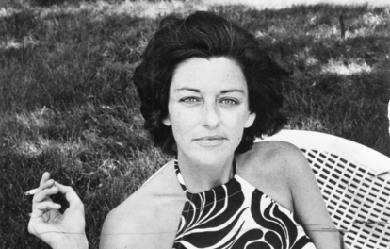
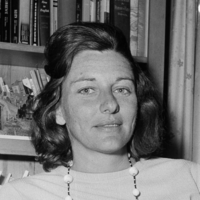
Anne Sexton (November 9, 1928, Newton, Massachusetts – October 4, 1974, Weston, Massachusetts) was an American poetese, known for her highly personal, confessional verse. She won the Pulitzer Prize for poetry in 1967. Themes of her poetry include her suicidal tendencies, long battle against depression and various intimate details from her private life, including her relationships with her husband and children. Sexton suffered from severe mental illness for much of her life, her first manic episode taking place in 1954.
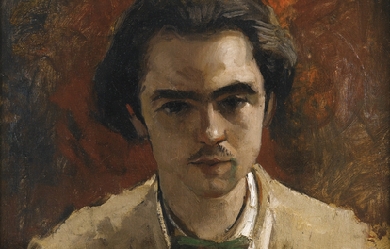
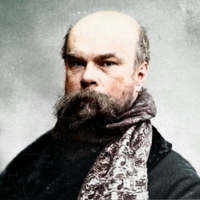
Paul Verlaine est un écrivain et poète français du xixe siècle, né à Metz (Moselle) le 30 mars 1844 et mort à Paris le 8 janvier 1896 (à 51 ans). Il s'essaie à la poésie et publie son premier recueil, Poèmes saturniens en 1866, à 22 ans. Sa vie est bouleversée quand il rencontre Arthur Rimbaud en septembre 1871. Leur vie amoureuse tumultueuse et errante en Angleterre et en Belgique débouche sur la scène violente où, à Bruxelles, Verlaine blesse superficiellement au poignet celui qu'il appelle son « époux infernal » : jugé et condamné, il reste en prison jusqu'au début de 1875, renouant avec le catholicisme de son enfance et écrivant des poèmes qui prendront place dans ses recueils suivants : Sagesse (1880), Jadis et Naguère (1884) et Parallèlement (1889). Usé par l'alcool et la maladie, Verlaine meurt à 51 ans, le 8 janvier 1896, d'une pneumonie aiguë. Il est inhumé à Paris au cimetière des Batignolles (11e division). Archétype du poète maudit, Verlaine est reconnu comme un maître par la génération suivante. Son style — fait de musicalité et de fluidité jouant avec les rythmes impairs — et la tonalité de nombre de ses poèmes — associant mélancolie et clairs-obscurs — révèlent, au-delà de l'apparente simplicité formelle, une profonde sensibilité, en résonance avec l'inspiration de certains artistes contemporains, des peintres impressionnistes ou des compositeurs (tels Reynaldo Hahn, Gabriel Fauré et Claude Debussy, qui mettront d'ailleurs en musique plusieurs de ses poèmes).

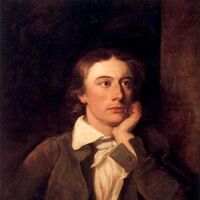
English Romantic poet John Keats was born on October 31, 1795, in London. The oldest of four children, he lost both his parents at a young age. His father, a livery-stable keeper, died when Keats was eight; his mother died of tuberculosis six years later. After his mother's death, Keats's maternal grandmother appointed two London merchants, Richard Abbey and John Rowland Sandell, as guardians. Abbey, a prosperous tea broker, assumed the bulk of this responsibility, while Sandell played only a minor role. When Keats was fifteen, Abbey withdrew him from the Clarke School, Enfield, to apprentice with an apothecary-surgeon and study medicine in a London hospital. In 1816 Keats became a licensed apothecary, but he never practiced his profession, deciding instead to write poetry.
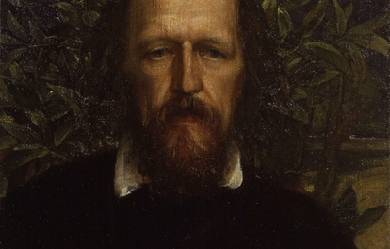
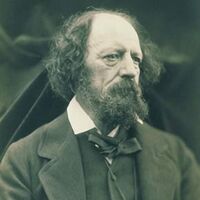
Alfred Tennyson, 1st Baron Tennyson, FRS (6 August 1809 – 6 October 1892) was Poet Laureate of the United Kingdom during much of Queen Victoria's reign and remains one of the most popular poets in the English language. A number of phrases from Tennyson’s work have become commonplaces of the English language, including “Nature, red in tooth and claw”, “'Tis better to have loved and lost / Than never to have loved at all”, “Theirs not to reason why, / Theirs but to do and die”, “My strength is as the strength of ten, / Because my heart is pure”, “Knowledge comes, but Wisdom lingers”, and “The old order changeth, yielding place to new”. He is the ninth most frequently quoted writer in The Oxford Dictionary of Quotations.
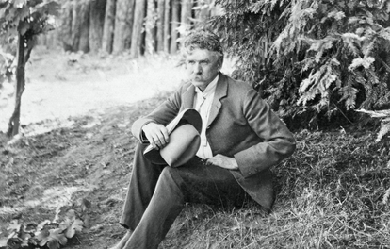
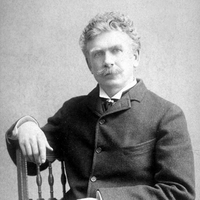
Ambrose Gwinnett Bierce (June 24, 1842 – circa 1914) was an American Civil War soldier, wit, and writer. Bierce’s book The Devil’s Dictionary was named as one of “The 100 Greatest Masterpieces of American Literature” by the American Revolution Bicentennial Administration. His story An Occurrence at Owl Creek Bridge has been described as “one of the most famous and frequently anthologized stories in American literature”; and his book Tales of Soldiers and Civilians (also published as In the Midst of Life) was named by the Grolier Club as one of the 100 most influential American books printed before 1900.

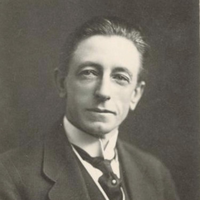
Clarence Michael James Stanislaus Dennis, better kn (own as C. J. Dennis, (7 September 1876– 22 June 1938) was an Australian poet known for his humorous poems, especially “The Songs of a Sentimental Bloke”, published in the early 20th century. Though Dennis’s work is less well known today, his 1916 publication of The Sentimental Bloke sold 65,000 copies in its first year, and by 1917 he was the most prosperous poet in Australian history. Together with Banjo Paterson and Henry Lawson, both of whom he collaborated with, he is often considered among Australia’s three most famous poets. When he died at the age of 61, the Prime Minister of Australia Joseph Lyons suggested he was destined to be remembered as the “Australian Robert Burns”. Biography C. J. Dennis was born in Auburn, South Australia. His father owned hotels in Auburn, and then later in Gladstone and Laura. His mother suffered ill health, so Clarrie (as he was known) was raised initially by his great-aunts, then went away to school, Christian Brothers College, Adelaide as a teenager. At the age of 19 he was employed as a solicitor’s clerk. It was while he was working in this job that, like banker’s clerk Banjo Paterson before him, his first poem was published under the pseudonym “The Best of the Six”. He later went on to publish in The Worker, under his own name, and as “Den”, and in The Bulletin. His collected poetry was published by Angus & Robertson. He joined the literary staff of The Critic in 1897, and after a spell doing odd jobs around Broken Hill, returned to The Critic, serving for a time c. 1904 as editor, to be succeeded by Conrad Eitel. He founded a short-lived literary paper The Gadfly. From 1922 he served as staff poet on the Melbourne Herald. C. J. Dennis is buried in Box Hill Cemetery, Melbourne. The Box Hill Historical Society has attached a commemorative plaque to the gravestone. Dennis is also commemorated with a plaque on Circular Quay in Sydney which forms part of the NSW Ministry for the Arts - Writers Walk series, and by a bust outside the town hall of the town of Laura. Books * Backblock Ballads and Other Verses (1913) * The Songs of a Sentimental Bloke (1915) * The Moods of Ginger Mick (1916) * The Glugs of Gosh (1917) * Doreen (1917) * Digger Smith (1918) * Backblock Ballads and Later Verses (1918) * Jim of the Hills (1919) * A Book for Kids (1921) (reissued as Roundabout, 1935) * Rose of Spadgers (1924) * The Singing Garden (1935) Shorter poems of note “The Austra-laise” (1908) Many shorter works were also published in a wide variety of Australian newspapers and magazines. References Wikipedia—https://en.wikipedia.org/wiki/C._J._Dennis

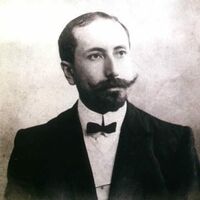
Amado Ruiz de Nervo y Ordaz (Tepic, Distrito Militar de Tepic, Jalisco, República Restaurada, 27 de agosto de 1870 – Montevideo, Uruguay, 24 de mayo de 1919), más conocido como Amado Nervo, fue un poeta y escritor mexicano, perteneciente al movimiento modernista. Fue miembro correspondiente de la Academia Mexicana de la Lengua, pero no pudo serlo de número por residir en el extranjero.
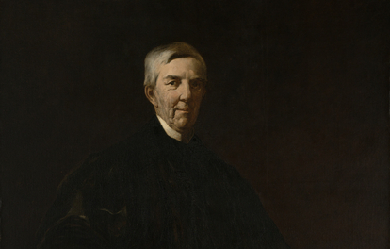
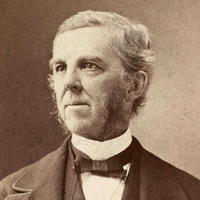
Oliver Wendell Holmes (August 29, 1809 – October 7, 1894) was an American physician, poet, and polymath based in Boston. Grouped among the fireside poets, he was acclaimed by his peers as one of the best writers of the day. His most famous prose works are the "Breakfast-Table" series, which began with The Autocrat of the Breakfast-Table (1858). He was also an important medical reformer. In addition to his work as an author and poet, Holmes also served as a physician, professor, lecturer, inventor, and, although he never practiced it, he received formal training in law.
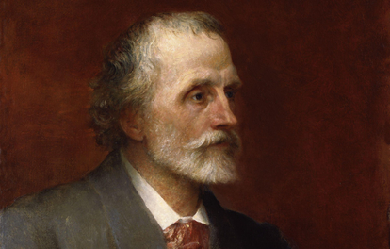
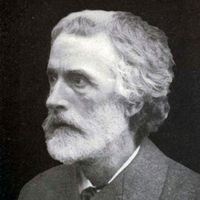
George Meredith, OM (12 February 1828 – 18 May 1909) was an English novelist and poet of the Victorian era. Meredith was born in Portsmouth, England, a son and grandson of naval outfitters. His mother died when he was five. At the age of 14 he was sent to a Moravian School in Neuwied, Germany, where he remained for two years. He read law and was articled as a solicitor, but abandoned that profession for journalism and poetry. He collaborated with Edward Gryffydh Peacock, son of Thomas Love Peacock in publishing a privately circulated literary magazine, the Monthly Observer. He married Edward Peacock’s widowed sister Mary Ellen Nicolls in 1849 when he was twenty-one years old and she was twenty-eight.
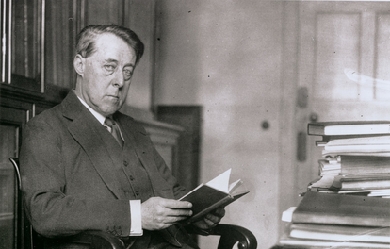
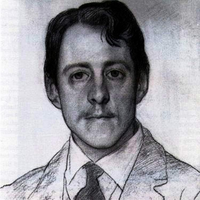
Robert Laurence Binyon (10 August 1869– 10 March 1943) was an English poet, dramatist and art scholar. His most famous work, For the Fallen, is well known for being used in Remembrance Sunday services. Laurence Binyon was born in Lancaster, Lancashire, England. His parents were Frederick Binyon, and Mary Dockray. Mary’s father, Robert Benson Dockray, was the main engineer of the London and Birmingham Railway. The family were Quakers. Binyon studied at St Paul’s School, London. Then he read Classics (Honour Moderations) at Trinity College, Oxford, where he won the Newdigate Prize for poetry in 1891.


